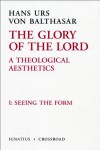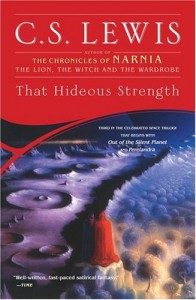
The reader who comes to "That Hideous Strength" for the first time after reading "Out of the Silent Planet" and "Perelandra" could be excused for wondering how it fits in with the rest of the Space Trilogy. It bears little resemblance to its companion volumes. There is no journey through space, no exploration of strange, beautiful worlds, and no alien races. Dr. Ransom, far from being the central character, is absent from the first third of the book, Lewis makes no appearance at all, and nowhere are there hints of an un-fallen creation. The story is more complicated, the cast of characters larger, and the scale of the battle between good and evil far greater, and far more subtle, than the first two books. From every angle, "That Hideous Strength" appears to be stubbornly Earthbound and cut from a completely different cloth.
Those, however, who are familiar with C.S. Lewis, know that there is always more to his books than meets the eye. In spite of the many substantial differences between That Hideous Strength and its predecessors, the patient and careful reader will discover profound similarities, and an even more profound, startling and ambitious purpose.
When the book opens, a young, progressive, academically minded couple is making the difficult transition from single to married life. Mark Studdock is a fellow at a small college trying to work his way into an influential inner circle in the hopes of advancing his career. His wife, Jane, works at home on a dissertation. Mark is forced to spend long hours at the college wrangling for position and his wife is, understandably, frustrated. But the trappings of a domestic soap opera disappear before they can take root. Jane begins to experience visions of a gruesome, disembodied head speaking to her in a strange tongue and a giant, ancient man about to be awakened from an ages long sleep.
Deeply disturbed by her visions and her husband's absences, Jane sets aside her progressive feminism to consult the housemother of her former college, the very old-fashioned Mrs. Dimble. Older, wiser, childless but still matronly, Mother Dimble invites Jane to consult with a man she refers to as "The Director" who lives in a mansion at St.-Anne's-on-the-Hill.
Mark, in the meantime, succeeds in penetrating the inner circle of his college, only to find that there is a deeper circle still, larger, more influential, and connected with an organization known as the National Institute for Coordinated Experiments, or the N.I.C.E. The N.I.C.E. exists, ostensibly, to de-couple science from the restrictions of government, streamlining discovery and facilitating invention. Freed from the shackles of government oversight and accountability, it exercises a great deal of power both within its walls and in the world outside. Mark is encouraged to pursue a position with the N.I.C.E., and is invited to spend a long weekend there to secure the situation.
He and Jane each depart without the other's knowledge for their respective destinations, moving in opposite directions physically and spiritually. Mark learns that nothing about the N.I.C.E. bears any resemblance to its name. Those who exercise power there draw him in, manipulating his desire to be included and fear of being left out. He is disoriented by a combination of ugly secrets, lies, and frightening mysteries until he slowly realizes that, not only is his career in jeopardy, but his life, his wife's, and the future of everyone in England.
Jane, too, is drawn in to the inner circle of the mansion at St. Anne's, but she is attracted by a Good that is absolute and beautiful. There are secrets and mysteries at St. Anne's, but, far from being manipulative and disorienting, they bring clarity and freedom. Her discoveries lead her to a life that is larger, richer and more beautiful than she had ever imagined.
As Jane and Mark learn more about St. Anne's and the N.I.C.E., the plot of "That Hideous Strength" deepens and the pace quickens. They find themselves caught on opposing sides of a new battle in a war as old as time. They both encounter characters and situations that, though normal in appearance, possess a subtle strangeness. The mundane around them melts away, and they find themselves in an old faery tale world of kings and wizards, monsters, evil faeries, lesser gods and animals that are far more than mere beasts. When the battle is joined, all of these will play their part. Many will die and be overthrown, but much will also be restored to its rightful place before the end.
To reveal more about the story would be to rob the reader of the delights too numerous to mention. Suffice to say that there is more than enough to entertain and satisfy the imagination of even a superficial reader. But "That Hideous Strength" is about so much more than just its story. It is as rich and full of various types of meaning as "Faery Queene" or "The Divine Comedy", and his purpose is no less ambitious than Spencer's or Dante's.
Primarily, "That Hideous Strength" is about redemption, and that on many levels. At the highest level is about the redemption of Mark and Jane. When they are introduced, neither of them are likeable. Mark's fixation with being in the most progressive inner circle betrays a desperate insecurity. It is more important for him to be in the know than to know anything worthwhile or to know his wife. His enemies play on this weakness to ensnare him in the culture of the N.I.C.E. For most of the book, he is willing to do anything to be on the inside, ignoring the evil around him, descending to ridiculous levels of self-deception and compromise, almost to the point of sacrificing his wife.
Jane is equally vapid, devoted to a feminist ideology bent on the abandonment and destruction of anything remotely feminine. She eschews the traditional roles of male and female in marriage, especially that of bearing children. She carries a hidden resentment of her husband simply because he is a man. The road to redemption for both of them is perilous, but as they travel it, they become more and more attractive, more like the kind of people we might like, and want to be like.
Deeper than the redemption of Mark and Jane, it is about the redemption of marriage and childbearing. In Mark and Jane, he embodies the prevailing mindset about marriage among the more intelligent and affluent; that marriage is a partnership of mutual convenience, an arrangement between equals. It is sterile and dry, ignoring the obvious differences between men and women in the name of political correctness. Sex is for recreation and entertainment. Children are an imposition, a necessary evil for the purpose of perpetuating the race, to be disposed of in childcare and state schools as soon as possible so that we can have our time back.
Lewis dares to step in and say "no". Marriage is a covenantal relationship between a man and a woman where each gives their all for the other. There are no equals in marriage. Men and women are so different that equality does not enter the equation. Marriage cannot be about getting our rights as equals. If we insist only on equality, marriage fails because we focus on what we are getting and making sure that it is equal to what we are giving. If marriage is to work, men and women must give their all as men and women to be servants of one another. This is one of the hardest lessons about marriage, but when it is learned, when we come to grips with the glorious complementary inequality between man and woman, it makes marriage the most beautiful of relationships.
Lewis also makes the bold claim that one of the chief aims of marriage is childbearing. When we intentionally prevent conception, we violate the created order of things. The physical pleasure that accompanies copulation is a byproduct of the act that produces children, not the other way around. It was never meant to be only a form of entertainment, but re-creation in the truest sense of the word. It is in the mutual submission of marriage and the successful rearing of children that we find joys that far transcend mere physicality.
All of this is accomplished without preaching or quoting Scripture. Instead, Lewis uses illustrations of healthy marriages and prose that borders on poetry to shame the cold institution that passes for marriage today. For example, in one of the most famous episodes in the book, the Director confronts a stranger in a battle of wits and words that includes the following exchange:
"The Stranger mused for a few seconds; then, speaking in a slightly sing-song voice, as though he repeated on old lesson, he asked, in two Latin hexameters, the following question:
'Who is called Sulva? What road does she walk? Why is the womb barren on one side? Where are the cold marriages?'
Ransom replied, 'Sulva is she whom mortals call the Moon. She walks in the lowest sphere. The rim of the world that was wasted goes through her. Half of her orb is turned toward us and shares our curse. Her other half looks to Deep Heaven; happy would be he who could cross that frontier and see the fields on her further side. On this side, the womb is barren and the marriages are cold. There dwell an accursed people, full of pride and lust. There when a young man takes a maiden in marriage, they do not lie together, but each lies with a cunningly fashioned image of the other, made to move and to be warm by devilish arts, for real flesh will not please them, they are so dainty (delicati) in their dreams of lust. Their real children they fabricate by vile arts in a secret place.'"
In another passage, the same stranger asks permission to kill Jane for the crime of avoiding conception.
"...the Stranger was speaking and pointing at her as he spoke.
"˜Sir, you have in your house the falsest lady of any at this time alive.'
"˜Sir, you are mistaken. She is doubtless like all of us a sinner; but the woman is chaste.'
"˜Sir,' said [the stranger], "˜know well that she has done in Logres a thing of which no less sorrow shall come than came of the stroke that Balinus struck. For sir, it was the purpose of God that she and her lord should between them have begotten a child by whom the enemies should have been put out of Logres for a thousand years.'
"˜She is but lately married,' said Ransom. "˜The child may yet be born.'
"˜Sir,' said [the stranger], "˜be assured that the child will never be born, for the hour of its begetting is passed. Of their own will they are barren: I did not know till now that the usages of Sulva were so common among you. For a hundred generations in two lines the begetting of this child was prepared; and unless God should rip up the work of time, such seed, and such an hour, in such a land, shall never be again.'
"˜Enough said,' answered Ransom. "˜The woman perceives that we are speaking of her.'
"˜It would be great charity,' said [the stranger] "˜if you gave order that her head should be cut from her shoulders; for it is a weariness to look at her.'"
This is a common enough argument against contraception and abortion; who knows how many great men and women have been killed in the womb? The physician who would have found a cure for cancer, the engineer that would have discovered a clean, renewable source of energy; have they died before they could give their gift to the world? It is impossible to know.
Juxtaposed against the justly harsh critique of contemporary marriage are the healthy marriages of Mother Dimble and her husband Cecil, and Arthur and Camilla Deniston. They provide an attractive model of what marriage can be. Though far from perfect, their marriages are marked by a love that is other-centered and self-sacrificial. They know each other's strengths and weaknesses, but the weaknesses provide opportunities to serve, not correct. A beautiful example of this comes when Mother Dimble and another resident of the mansion are discussing their husbands:
"'That's how they treat us once they're married. They don't even listen to what we say,' I said. And do you know what she said? 'Ivy Maggs,' said she, 'did it ever come into your mind to ask whether anyone could listen to all we say?'"
Mother Dimble does not chide her husband for not listening to every word she said. She understands that men do not work that way, and serves her husband by allowing him to be a man. The promise of beauty in marriage and childrearing is alive in the Dimbles and the Denistons. By divine intervention, Jane and Mark are given the opportunity to enter into both.
Going even deeper, "That Hideous Strength" about the redemption of beauty and innocence on Earth. In both "Out of the Silent Planet" and "Perelandra" he created scenes of heartbreaking beauty amid a setting of un-fallen, innocent creatures. At first glance, "That Hideous Strength" is devoid of those things. But near the end, there is a chapter devoted to reconciliation that takes place in a scene of humble domesticity: a bridal chamber in a simple cottage, with a fire on the hearth and dinner cooking on the stove. After the horror of the recent battle, it is breathtakingly beautiful, and Lewis' purpose comes into sharp focus. He had to take us away from Earth to Malacandra and Perelandra to reintroduce us to beauty and innocence. Our eyes and consciences had to be reopened and refreshed, and we had to be reminded of the hideous nature of evil, before he could bring us back to Earth and show us that beauty and innocence can still be found here. The infection had to be removed before we could remember health.
There is so much more that could be discussed. There is the redemption of the relationship between man and the lower animals; there is a critique of the evils of postmodernism, there are contrasts and ironies galore, and the bringing together of elements of Arthurian legend, medieval cosmology, and even the curse of the Tower of Babel to tie all of it together. There is also his love of language, which is equal to that of Tolkien and every bit as enjoyable, though of a slightly different savor. But I have gone on long enough. There are treasures in "That Hideous Strength" rich enough to reward all who are willing to take the plunge, and I heartily encourage everyone who comes this way to do so.




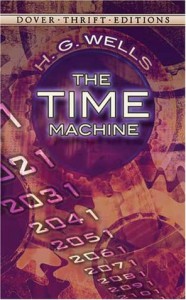


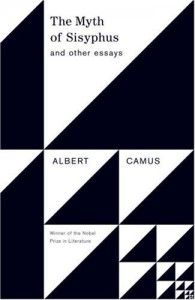


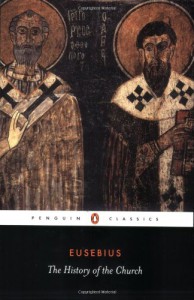


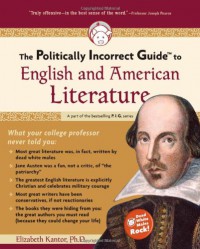

 1
1




